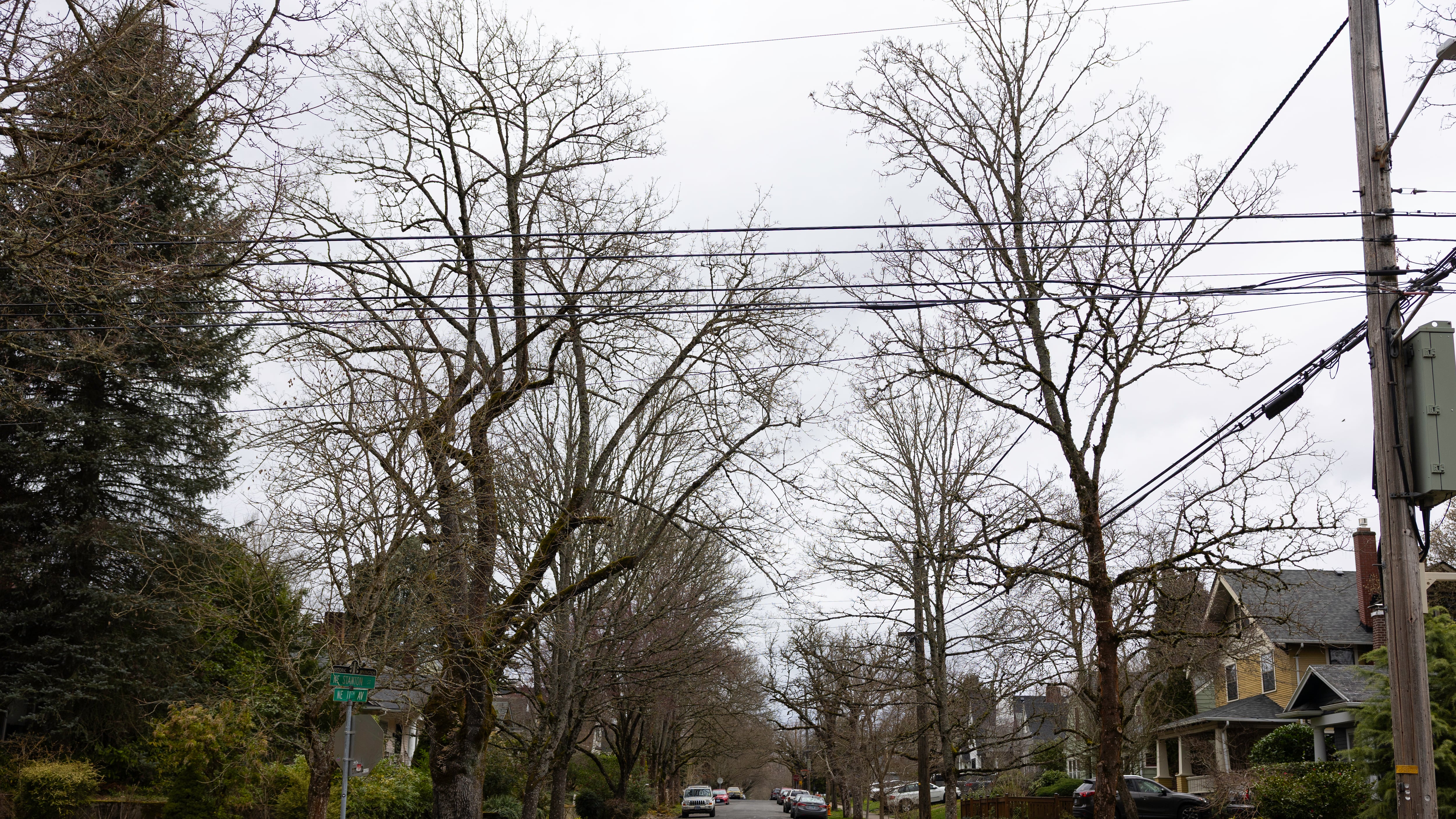The Portland City Council discussed an ordinance this week that, if passed, would waive tree-planting requirements for certain interior residential and building projects until 2029.
The policy would ease the burden for homeowners and building owners who are looking to make mostly internal changes to their property. Currently, if internal home and building projects exceed a certain cost, it can trigger city fees and requirements associated with tree planting, seismic reports, and sidewalk and curb improvements.
District 3 Councilor Angelita Morillo, who co-sponsored the ordinance with District 1 Councilor Jamie Dunphy, said at a Sept. 3 council meeting that the reform was a “common sense” one.
“This is exactly what government should be doing,” Morillo said. “These are common sense changes that will help modify buildings in Portland that already exist.”
The council passed the ordinance on to a second and final vote, slated for Sept. 24.
At issue are rules in city code that require a building owner or homeowner to plant street trees if a project exceeds a specific cost—even if that project is purely internal to the building and in no way affects surrounding trees. A city memo accompanying the ordinance notes that based on surveys of Portlanders, the threshold provision is “one of the most significant pain points” for customers like homeowners and small business owners. They’ve cited “inconsistencies across code provisions, complexity, and lack of transparency as primary challenges,” the memo reads.
“The ordinance reduces tree planting requirements when the proposed project does not impact or have a link to street trees,” the proposed ordinance reads, “such as a kitchen or bathroom remodel or a tenant-related improvement in a multidwelling site.”
Other requirements waived by the ordinance would include certain seismic reports and street frontage improvements like curbs and sidewalks.
Dunphy said he’d heard from constituents who were required to plant a tree because they added a bathroom to their home. “[We’re] looking at some of those things that are just sort of silly in our code sometimes,” Dunphy said. “If you’re adding a bathroom, why do you have to add trees? We love trees, but that certainly adds a level of complexity and cost when we’re trying to get things moving in this city.”
A District 3 constituent emailed his councilors last month about this exact issue after spotting a $644 Urban Forestry fee on his bill from the city after submitting plans for a basement kitchen build-out that in no way affected the home externally.
“We are finishing our unfinished basement and reorienting our kitchen—all internal work, but work over $25,000,” Will Howell wrote to District 3 councilors Morillo, Tiffany Koyama Lane and Steve Novick in an Aug. 20 email. “The permitting schedule dictates that, because the work exceeds $25,000, there’s a $644 urban forestry fee.”
(Howell formerly worked in City Hall as the communications director for former City Commissioner Carmen Rubio.)
Howell’s bill, shared with WW, reflects the $644 “Forestry Residential Permit” charge.
Elliott Kozuch, a spokesman for the city, says if passed, the ordinance would waive fees like Howell’s. “The proposed ordinance will significantly reduce the number of situations in private development where the street tree review fee will be applied,” Kozuch says. “In the past, the review fee ensured trees were protected during construction activity and that required street trees are planted.”
The Urban Forestry Division in a statement said they were supportive of the ordinance.
“Portland Parks & Recreation’s Urban Forestry team appreciates City Council’s action to remove this outdated development requirement,” said UF spokesman Tim Collier. “Streamlining code in this way helps us focus on building community trust and planting trees in the neighborhoods that need them most.”

